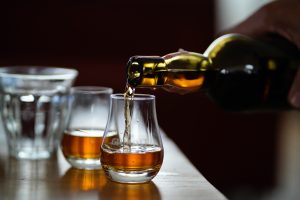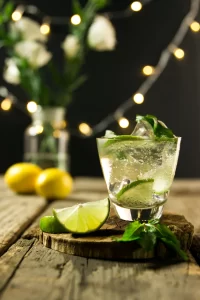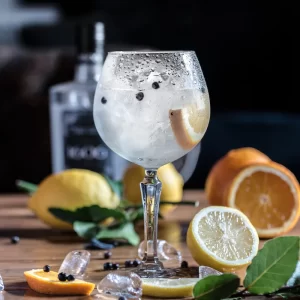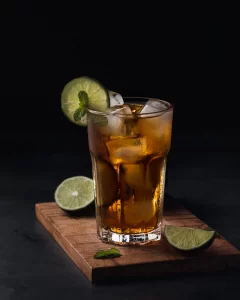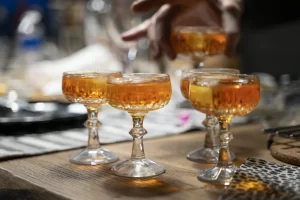Iowa Liquor Laws And Regulations
Iowa is a state in the Midwest region of the United States that has become synonymous with important agricultural and food processing industries.
As with other states in the US, Iowa has its own set of laws and regulations that govern the sale, consumption, and distribution of alcoholic beverages.
These laws have been created to promote reasonable drinking and distribution practices and to prevent the abuse of alcohol by the general public.
But what exactly are the laws surrounding liquor in the state of Iowa? If you’re somebody within the industry, then you’re going to need to know about these.
In this article, we will explore the most important laws and regulations around liquor in Iowa, including general laws, state fees, licensing requirements, distillery restrictions, and some other information you’ll need to know.
General Laws Around Liquor In Iowa
The agency responsible for enforcing liquor laws and regulations in Iowa is the ABD or the Iowa Alcoholic Beverages Division. This is a state agency that regulates the sale, distribution, and consumption of alcoholic beverages within the state.
The first important thing to note is that under Iowa law, it is illegal to sell or give alcoholic beverages to anyone under the age of 21.
The legal drinking age is 21, and anyone who is caught giving alcohol to minors can face dire penalties, including tough fines and even jail time.
Another important general law is that there is a prohibition on the sale of alcoholic beverages between the hours of 2:00 am and 6:00 am. This is to promote responsible drinking during these hours.
There are a few exceptions to this rule, including for guests staying at a hotel, in private clubs, and in the case of certain special events.
This law is important to know for a bar or restaurant and is a common cause for an establishment having to receive fines, or else have their liquor license revoked.
State Fees
Moving on to state fees, it’s important for you to know that the Iowa ABD charges various fees related to the sale and distribution of alcohol. These fees include licensing fees, regulation fees, and permit fees.
The fees charged by the ABD can vary depending on the type of license that an establishment or company is looking to purchase, and is often dependent on the size, location, and nature of the products that are being sold.
Licensing Requirements
In order to sell alcoholic beverages in Iowa, an establishment must obtain a liquor license from the ABD. There are several types of liquor licenses available in Iowa, including Class A, B, C, D, E, and F licenses.
All of these are different and you should research which is the most appropriate for you before beginning the application process.
Class A licenses are for businesses that sell liquor by the bottle or container, while Class B licenses are for businesses that sell liquor in a bar or restaurant setting.
Class C licenses are for hotels and motels that have on-site liquor sales, while Class D licenses are for grocery stores and convenience stores that sell beer and wine.
Class E licenses are for special events, while Class F licenses are for businesses that manufacture, distill, or blend alcoholic beverages.
In addition to obtaining a liquor license, establishments that sell alcoholic beverages in Iowa must also comply with a variety of regulations related to the storage, handling, and service of alcohol.
For example, all alcoholic beverages must be stored in a secure location and must be kept out of reach of minors.
Another thing to note here is that establishments must have a designated server who is trained in responsible alcohol service and must follow all applicable rules related to serving alcohol. This is something that is a requirement, and you can be punished if you don’t follow it.
Distillery Restrictions

Iowa law places a number of restrictions on distilleries and other businesses that manufacture alcoholic beverages. For example, distilleries are not allowed to sell their products directly to consumers, except through a licensed retailer or wholesaler.
In addition, distilleries are limited in the number of spirits they can produce each year, and they must obtain a special permit from the ABD in order to sell their products at special events.
Other Laws
In addition to the general laws and regulations related to the sale and distribution of alcoholic beverages in Iowa, there are a number of other laws that affect the consumption and possession of alcohol in the state.
For example, Iowa law prohibits the possession of an open container of alcohol in a motor vehicle. In addition, Iowa law allows for the confiscation of alcoholic beverages from minors who are caught in possession of alcohol.
Final Thoughts
In short, the laws and regulations around liquor in Iowa are designed to promote responsible drinking and prevent the abuse of alcohol. The Iowa Alcoholic Beverages Division plays an important role by enforcing these laws and regulations.
Establishments and companies that buy and sell alcohol must comply with some rigid licensing requirements, regulations, and associated fees.
To learn more about the specifics of liquor licensing within the state of Iowa, make sure you visit the Iowa.gov website to find out anything that is specific to your situation.
We hope that this article has explained everything you wanted to know about this and that you’re now more confident about what you’ll need to do when applying for a permit. If you still have some questions, check out our short FAQ section below. Good luck!
Frequently Asked Questions
Can I Buy Alcohol In Iowa On A Sunday?
You can purchase alcohol in Iowa on a Sunday, however, you should know that some cities may have their own restrictions. This also depends on the time of year, as some holidays have varying rules.
Can I Bring Alcohol Into Iowa From Another State?
It is possible to bring alcohol into Iowa from another state, provided you comply with the laws and regulations related to the possession and transportation of alcohol.
What Are The Penalties For Driving Under The Influence (DUI) In The State Of Iowa?
The penalties for a DUI in Iowa can vary massively depending on the specific circumstances of the offense. It’s important to note that there are few exceptions to this law and that penalties can go all the way up to license suspension, and possible jail sentences.
